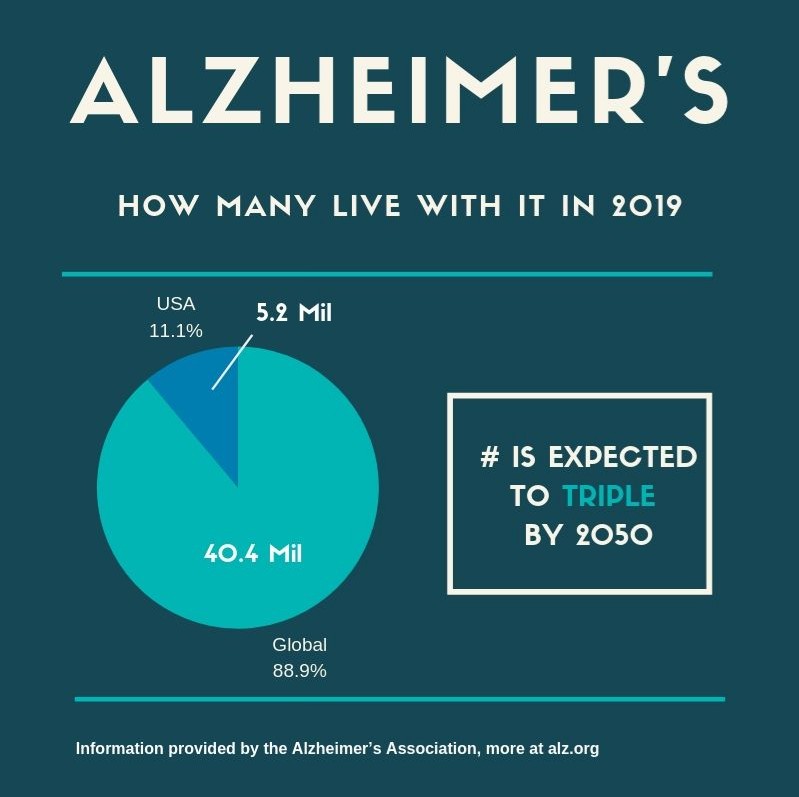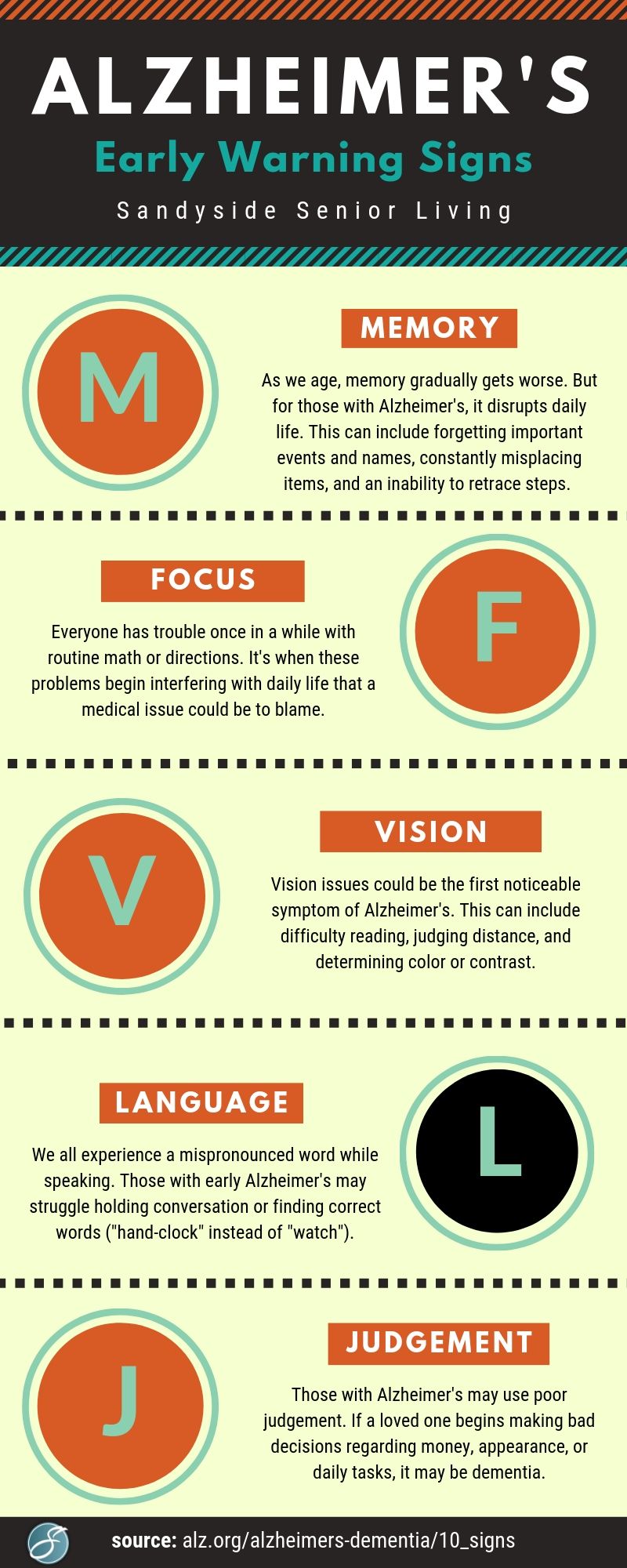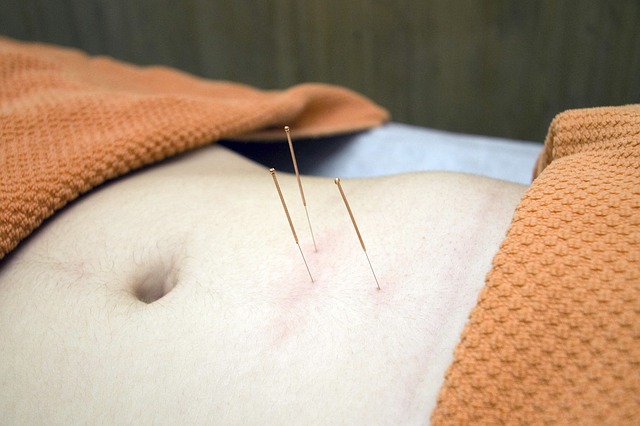Medical research is quickly advancing to where diseases once fatal are no more frightening than the common cold. HIV, Polio, and even the Ebola Virus are headed towards complete extinction, but what about Alzheimer’s? Can Alzheimer’s Disease be Cured?
Cases of Alzheimer’s seems to be steadily climbing. According to the Alzheimer’s Association, the number of American’s diagnosed with Alzheimer’s is over 5 million. If that’s not bad enough, that number is expected to triple by 2050.

What is Alzheimer’s Disease?
Alzheimer’s is a serious senior health issue affecting memory, cognitive skills, as well as important mental and physical functions. Though this disease does effect numerous parts of the body, the most well-known symptom is memory loss.

Those with Alzheimer’s may feel disconnected from family and friends
Alzheimer’s vs. Dementia
Many confuse Alzheimer’s and dementia, when really they can’t be compared side by side. Alzheimer’s is a disease, where dementia is a syndrome. Alzheimer’s is a form of dementia accounting for 60%-80% of dementia cases (alz.org). Still confused? Check out the graphic below:
What are the Symptoms of Alzheimer’s?
There are numerous symptoms of Alzheimer’s that impair mental, and in-turn, physical function. If you or a loved one is diagnosed with this illness, doctors and therapists will likely treat the symptoms, not the disease.
Although Alzheimer’s may appear to affect the hands, feet, arms, legs, and other parts of the body, it should be understood that Alzheimer’s damages brain cells. This means that the disease does not directly interfere with function in the rest of your body.
Someone with Alzheimer’s may experience difficulty walking, balancing, and speaking, but this is due to the disease’s effect on the brain. The most common symptoms of Alzheimer’s include:
When most people search if Alzheimer’s can be cured, they are mainly hoping a cure exists for this devastating symptom. Memory loss is the most well-known and feared symptom of Alzheimer’s.
In the early stages of the disease, Alzheimer’s affects short-term memory. As the disease worsens, long-term memory will be affected as well.
Communication issues is one of the most commonly experienced symptoms of Alzheimer’s. This does not only refer to speaking. Difficulty forming words, and also effectively communicating thoughts, needs, and problems make care difficult for those with later-stage Alzheimer’s.
Attention span becomes shorter and shorter for those with progressive Alzheimer’s. For this reason, conversations, work projects, and even simple tasks like showering, eating, and using the restroom become nearly impossible to complete.
From how to respond to new information, to everyday tasks like getting dressed, Alzheimer’s can affect one’s ability to reason.
Because reasoning and judgement are impaired by Alzheimer’s, it’s best to have a trusted friend, family member, or care giver supervise the actions of an individual with the disease.
What may begin as a few clumsy moments, can quickly turn into dangerous falls and collisions. This is due to how the disease alters visual perception. If you or an elderly loved one can’t seem to keep their footing or avoid bumping into objects, it may be time to visit a doctor.
How Do You Get Alzheimer’s Disease?
After a positive diagnoses of Alzheimer’s, the first thing many people wonder is, “how do you get Alzheimer’s Disease?”. According to nia.nih.gov, scientists don’t yet fully understand what causes Alzheimer’s disease.
Although we may not 100% know the cause of Alzheimer’s, it is most likely linked to a combination of factors.
Factors That May Cause Alzheimer’s
LIFESTYLE

ENVIRONMENT

GENETICS

Early Signs of Alzheimer’s
Before you need to know the answer to “can Alzheimer’s Disease be cured?”, you should know the early signs. How do you know if you are developing Alzheimer’s Disease?
Memory loss, vision impairment, and many other indicators of Alzheimer’s also can occur naturally with old age. If you are not paying attention, progression of the disease could go unnoticed, making it more difficult to treat symptoms.
There are a few key signs that are typically present in those with early onset Alzheimer’s. If you or a loved one are displaying any of the following, please consult with a healthcare professional immediately:

When to Seek Treatment
It’s never smart to rush to judgement. As we all know, getting older comes with struggles easily confused with dementia like forgetfulness and worsening vision. But if you or a loved one are suffering from any of the early warning signs above, you may want to consider seeing a doctor.
If you’re unsure about going to the doctor, think of it this way. The earlier a person receives a diagnosis, the better chance they have at reducing the effect of symptoms and maximizing quality of life.
The better chance they have at reducing the effect of symptoms and maximizing quality of life.
Here are a few more reasons to get checked early for Alzheimer’s:
- Increased Benefits of Treatment – The earlier you receive a diagnosis, the more time you have to seek out treatments while symptoms are still mild. This could mean the difference of retaining your memory, vision, and cognitive functions for years longer than those who receive a late diagnosis.
- Clinical Trials – Scientists are still trying to figure out if Alzheimer’s can be cured. Those who receive a diagnosis during early stages of the disease are more desirable candidates for cutting edge medical trials than those already in the late stages.
- More Time to be You – Sadly, Alzheimer’s can lead to a future where an individual no longer remembers fond memories, achievements, hobbies, and even their closest friends and family members. If the disease is caught early, more time can be spent doing the things you love with the people you love; like reliving the good old days.
- Save Money – Alzheimer’s can be an expensive illness. Treatment and care for a person with dementia can be costly. The more time to prepare for things like doctor bills, senior therapy, and assisted living care, the better.

Image by Darko Stojanovic from Pixabay
Can Alzheimer’s Disease be Cured?
So now we come to the question that brought you here… Can Alzheimer’s Disease be Cured? I’m sad to say that the short answer is… No. While doctors are becoming more effective at treating Alzheimer’s symptoms, scientists still haven’t been able to develop a vaccine or cure for this memory disease.
The Good News: researchers are hard at work testing new medications and alternative treatments. These studies and trials could one day rid the world of Alzheimer’s and even dementia.
Medication

Image by blogmood__ from Pixabay
According to a recent study by researchers at the University of Oslo, a total of 99 percent of drugs have failed to cure, stop, or slow the progression of Alzheimer’s over the past fifteen years. While this may sound discouraging, some of these trials led to new drug options that may help treat dementia symptoms.
new drug options that may help treat dementia symptoms.
In researching this article, I discovered many hopeful studies submitted to medical journals by Alzheimer’s researchers. One in particular stood out…
Development of the Pittsburgh Compound B (PiB)
According to the Alzheimer’s Association, scientists were able to create the first radiotracer capable of showing beta-amyloid in the living brain during a positron emission tomography (PET) scan.
What This Means: Using this radiotracer, researchers will be able to determine if an experimental drug successfully decreases the hallmark Alzheimer’s protein (beta-amyloid) and provides invaluable information about disease progression!
Alternative Treatments

Acupuncture is a popular alternate treatment for Alzheimer’s, Image by Pixabay
Across the globe, scientists, doctors, and alternative healers alike are working to find a cure to Alzheimer’s Disease. A recent article by healthline.com, reviewed by medical professional Debra Rose Wilson, outlines some of the most popular alternative treatments for Alzheimer’s.
Click on the boxes below to learn a little more about some of the most well-known and interesting alternative treatments for Alzheimer’s.
Coconut Oil
A fatty acid that is found in processed coconut oil, Caprylic acid, breaks down into the protein ketone. A similar protein is used in a drug shown to increase memory performance and lessen cognitive decline, making coconut oil a potentially cheaper alternative.
Omega-3 Fatty Acids
Found in foods like fish, nuts, and oils, Omega-3 may reduce cognitive impairment.
Acupuncture
A common treatment for pain sufferers, acupuncture has been shown in studies to improve mood and cognitive function in people with Alzheimer’s Disease.
Bright Light Therapy
Sleeplessness and nighttime wandering are common issues associated with Alzheimer’s Disease. Light therapy has shown in studies to help restore balance to the sleep cycle of Alzheimer’s patients. This can increase wakefulness and reduce agitation.
Alzheimer’s Research
Alzheimer’s research is inching closer towards a cure every day. If you want to know if Alzheimer’s Disease can be cured, look no further than the work being done at facilities like the University of Oslo and University of Southern California (USC).
With a cure for Alzheimer’s seemingly out of reach, researchers are working on three important things:
- Alleviate or cure the symptoms of Alzheimer’s and dementia including memory loss and cognitive function.
- Early detection, diagnosis, and increasing quality of life through memory care.
- More efficient means of determining the success of studies on a living animal or human brain.
Research Success & Failures
How to Find Help With Alzheimer’s
If you or a loved one has been diagnosed with Alzheimer’s Disease, you are not alone. There is a wealth of information and opportunities available to help you fight back against the worst of dementia.
ADEAR at the National Institute on Aging
The National Institute on Aging, a division of the U.S. Department of Health & Human Services, helps people battle Alzheimer’s by raising awareness, funding research, and offering support both online and over the phone.
If you are interested in learning more about ADEAR at the NIA, please visit their website at nia.nih.gov/health/alzheimers, email them at [email protected], or reach out over the phone at 1-800-438-4380.
Alzheimer’s Association
The Alzheimer’s Association is dedicated to helping those with the disease through community outreach, funding research, and helping patients with every aspect of their lives with Alzheimer’s.
If you are interested in learning more about this incredible organization, please visit alz.org, or call their 24/7 helpline at 800-272-3900.
Sandyside Senior Living
Sandyside Senior Living is a licensed memory care facility located in White Lake, Michigan. The assisted living center specializes in Alzheimer’s patients offering such senior home amenities as a house physician, fresh-prepared meals, and 24-hour staff.
If you are interested in learning more about Sandyside Senior Living, please contact Sandyside online, or call at (248) 698-3700.
To get in touch with Sandyside Senior Living, a Memory Care Facility in White Lake, MI, please complete the form below:
VISIT SANDYSIDE SENIOR LIVING TODAY
PHONE: (248) 698-3700


